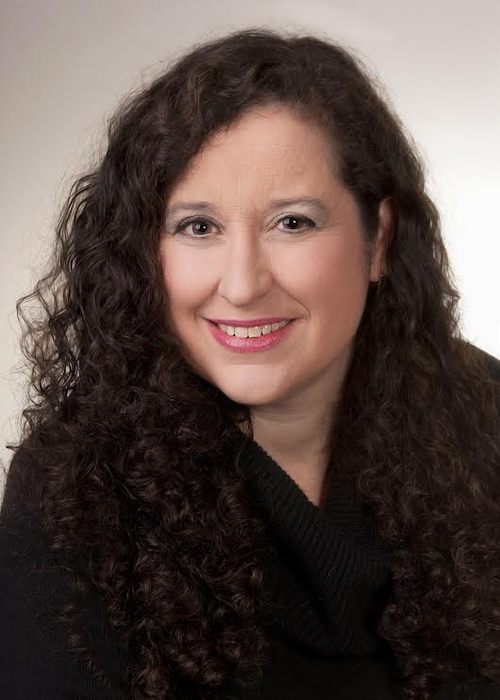BROOKLYN, New York, Weekday, February 23, 2022 – The Geo Institute (G-I) of the American Society of Civil Engineers is awarding one of its highest honors to a researcher at the NYU Tandon School of Engineering whose innovative approach to mapping structures and urban landscapes helps city planners and policy makers.

Credit: registered members of press
BROOKLYN, New York, Weekday, February 23, 2022 – The Geo Institute (G-I) of the American Society of Civil Engineers is awarding one of its highest honors to a researcher at the NYU Tandon School of Engineering whose innovative approach to mapping structures and urban landscapes helps city planners and policy makers.
Debra Laefer, Professor of Civil and Urban Engineering and Director of Citizen Science at NYU’s Center for Urban Science and Progress, is the first woman to receive the G-I’s prestigious Harry Schnabel Jr. Award since the award’s debut in 2007.
The award, one of the top honors in the field of geotechnical engineering, honors contributions to earth retention risk management through the innovative development and application of remote sensing technologies. To be considered for the honor, a candidate must have demonstrated a commitment to service, excellence, and innovation in earth retaining structures and have at least 20 years of experience.
Laefer’s work in the fields of urban informatics, remote sensing, geo-spatial data management, geotechnical engineering, and disaster mitigation and response, has led her to projects in art history and historic preservation, and the development of new technology, including solutions for protecting architecturally significant buildings from sub-surface construction.
Among her projects and accomplishments:
- Laefer and her Urban Modeling Group created a novel, aerial hyperspectral imaging system to “see” urban structures. Deployed in cities like Dublin, the visualization database identified buildings’ constituent materials, strengths, and weaknesses. Laefer’s group also created a novel distributed computing-based approach to building visualization models for these vast and growing datasets.
- At the height of the COVID pandemic in 2020, Laefer was awarded a National Science Foundation (NSF) RAPID grant for a project with the NYU School of Global Public Health employing 3D geospatial methods and virus mapping techniques to map the movement and behavioral choices of people when leaving high infection COVID-19 medical facilities.
- In 2019, the Institution of Civil Engineers honored Laefer for research employing terrestrial laser scanning (TLS) to examine Ireland’s historic Guinness Bridge
- For their Unification for Underground Resilience Measures (UNUM), Laefer and Rae Zimmerman, Professor Emerita of Planning and Public Administration at NYU Wagner, were 2021 awardees of the National Science Foundation’s $1 million Civic Innovation Challenge, a national competition to drive research and collaborative action in urban resiliency and smart and connected communities.
Laefer has served as the principal investigator for grants from a wide range of sponsors besides the NSF, including the US Federal Highway Administration, the National Endowment for the Arts, the National Endowment for the Humanities, Science Foundation Ireland, and the European Research Council (including a €1.5 million single investigator award from the flagship ERC program; she is the only civil engineer to have been funded in Ireland in the program’s 11-year history).
She has authored over 160 peer-reviewed publications, been awarded four patents, and has supervised 15 doctoral and 20 masters theses. Emblematic of her influence in the field, in 2016 the Royal Irish Academy commissioned her portrait, which is hung at the Academy as part of a project celebrating Irish women in science and engineering.
“Debra Laefer exhibits the intellectual curiosity, research rigor, and practical problem-solving we value at NYU Tandon,” said Dean Jelena Kovačević. “I’m thrilled that she is being honored by the American Society of Civil Engineers for her work on remote sensing and that she is adding another well-deserved laurel to her already-lengthy list.”
Laefer will receive the Harry Schnabel, Jr. Award at the Geo-Congress 2022 in Charlotte, North Carolina, March 20 – 23.
About the New York University Tandon School of Engineering
The NYU Tandon School of Engineering dates to 1854, the founding date for both the New York University School of Civil Engineering and Architecture and the Brooklyn Collegiate and Polytechnic Institute. A January 2014 merger created a comprehensive school of education and research in engineering and applied sciences as part of a global university, with close connections to engineering programs at NYU Abu Dhabi and NYU Shanghai. NYU Tandon is rooted in a vibrant tradition of entrepreneurship, intellectual curiosity, and innovative solutions to humanity’s most pressing global challenges. Research at Tandon focuses on vital intersections between communications/IT, cybersecurity, and data science/AI/robotics systems and tools and critical areas of society that they influence, including emerging media, health, sustainability, and urban living. We believe diversity is integral to excellence, and are creating a vibrant, inclusive, and equitable environment for all of our students, faculty and staff. For more information, visit engineering.nyu.edu.



